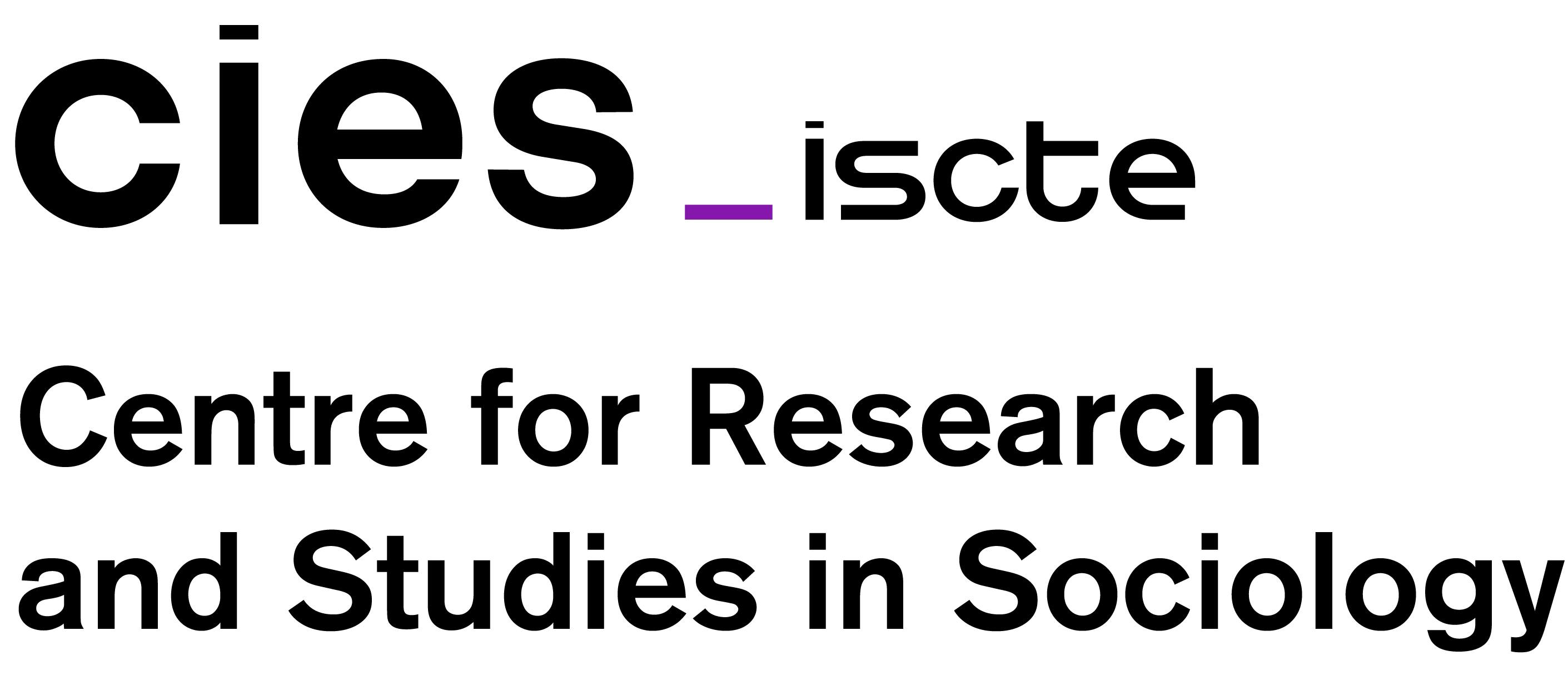Resumo
Our two week online Winter School (14th to 25th of February 2022) prepares professionals and students to meet the complex policy challenges that face Europe and the World in the field of drugs. Teaching staff include scientific experts from the European Monitoring Centre for Drugs and Drug Addiction (EMCDDA), researchers, practitioners and policymakers.
This edition will have a special focus on Cannabis: practice, policies and debates in the EU and beyond.
The Winter School will be delivered through online and remote instruction. Following the success of the first Winter School, live sessions with experts and practitioners will be held from early afternoon until late afternoon (Lisbon Time, GMT +1 to GMT +3/4). Individual small exercises will be given and assessed every day, and an exam will be offered to those who wish to earn the credits. Virtual tours to field work will be included.
Iscte Scholarships
Iscte offers five scholarships covering 50% of the standard fees, exclusively for scholars who register in the first phase (deadline 5th December 2021)
All candidates are eligible. Scholarships are attributed on the basis of merit (40%), and the GDP of the candidate's country of residence (60 %).
The University will inform the candidates selected, by email, together with their notification of acceptance.
Bursaries for Western Balkan region and European Neighbourhood Policy
Professionals, academics and experts from the Western Balkan region and European Neighbourhood Policy countries will have an opportunity to participate in the 2022 European Drugs Winter School (EDWS), thanks to scholarships offered through two EMCDDA projects: the Instrument for Pre-accession Assistance (IPA7) and EU4Monitoring Drugs (EU4MD). The scholarships will cover the course fees. All candidates from those regions who apply in the first phase (deadline 5th of December) will be eligible.
Credits and Requirements
The Winter School will give 6 ECTS for their courses.
Students are required to do the assigned readings ahead of time; and − for those who volunteer and/or are selected − to make a short presentation about their research/expertise.
A Multiple Choice Questionnaire (MCQ) will be required at the end of the Winter School, including questions on class content, class discussions and readings. For those who want to be formally evaluated, Iscte will issue a Specialised Studies Diploma with the final grade − if the exam is successfully concluded.
Students may also require attendance certificates.
Watch our promotional video
Follow us on Twitter
Subscribe to European Drugs Summer School 2022 – Updates (Newsletter)
Check what our students from previous editions are sharing and posting on Facebook
Join our Facebook event
ECTS
6
Destinatários
- University students (undergraduate, graduate and postgraduate), researchers, professionals and administrators interested in or working in the drugs field, including participants from the EMCDDA's network of focal points in 30 countries, or from programmes being developed by the EMCDDA with third countries (e.g. Western Balkans, North Africa, Eastern Europe).
Requisitos
- Please note that a good command of English is a mandatory requirement
Vagas
- Please note that a good command of English is a mandatory requirement
Vagas
50
Partnership
Plano Curricular
Equipa docente
Coordenação
Catherine Moury
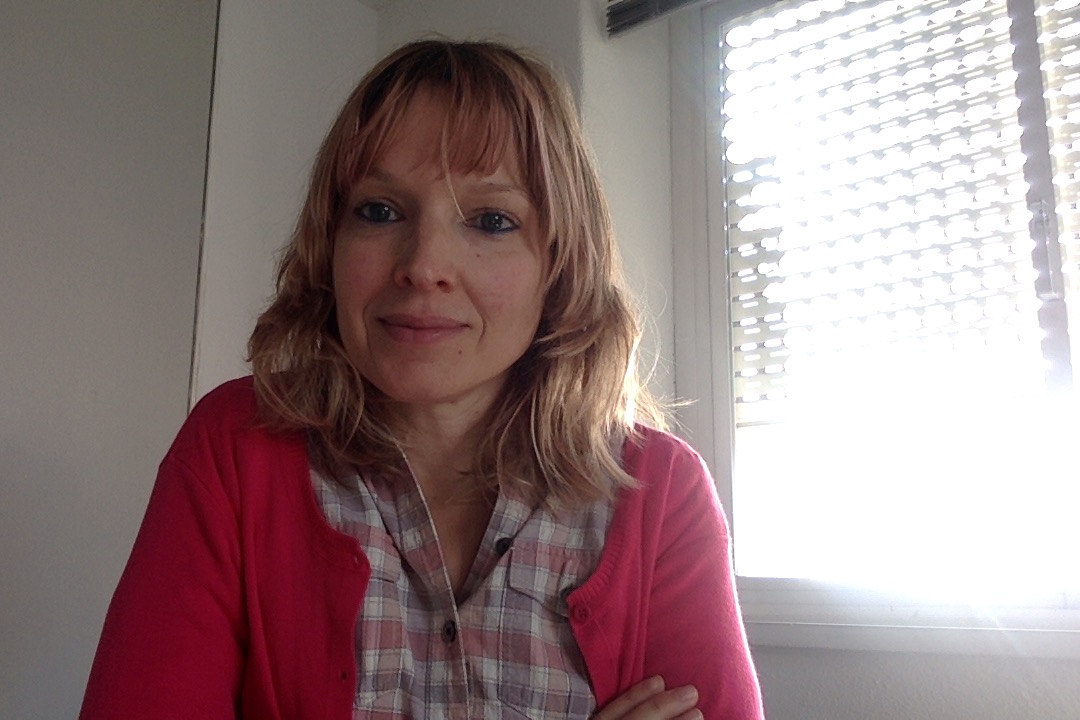
Associate Professor (with Habilitation)
- NOVA FCSH University of Lisbon
Catherine Moury is Associate Professor of Political Science, and the director of the Phd Program of the Department of Political Studies at the NOVA University of Lisbon, Portugal. She is Associate Editor of the European Political Science Review. Born in Belgium, Catherine received an European PhD in Comparative Politics from Siena University (Italy) where she was nominated for the Jean Blondel Prize.
Her research focuses on comparative politics and institutional change in the European Union. She has published in the American Journal of Political Science, European Journal of Political Research, Comparative Political Studies, Journal of European Public Policy, among others. Her forthcoming book is ‘Capitalising on Constraint: Bailout politics in Eurozone countries’ (Manchester University Press).
She is recipient of several prizes, including the Merit Award for scientific service and engagement of Belgian citizens working abroad, the Santander Prize for Collaborative Research, the Gulbenkian Foundation Prize and the Vincent Wright Memorial prize.
Marica Ferri

Head of the Support to Practice Sector
- European Monitoring Centre for Drugs and Drug Addiction (EMCDDA)
Marica Ferri is the Head of the Support to Practice Sector at the European Monitoring Centre for Drugs and Drug Addiction (EMCDDA). She is responsible for the Scientific Programme for the European Drugs Summer School since 2015. She holds two Master´s degree, the first in Epidemiology (Catholic University of Rome, A. Gemelli) and the second in Systematic Reviewing of Scientific Literature in the Biomedical Field University of Milan/University of Oxford. and a PhD in International Public Health (Institute of Hygiene and Tropical Medicine, Nova University, Lisbon). Since 1994 she has been working as a researcher and methodologist in the field of drug addiction and other medical disciplines.
She has been coordinating the Cochrane Drugs and Alcohol group during five years (1999–2004) and following this, she acted as a methodologist in the development of
several Guidelines at international, national and regional level. She coordinated the implementation phase of those guidelines, including training and assessment. . She taught Masters University courses at the University Statale of Milan, University Bocconi of Milan and Catholic University of Rome, A. Gemelli and at Telematic University of Rome (UNITELMA)
Lecturers
Alexis Goosdeel

Director
- European Monitoring Centre for Drugs & Drug Addiction (EMCDDA)
Mr Goosdeel joined the EMCDDA in 1999 as a project manager in the area of EU enlargement and international relations. From 2005, he headed the agency’s Reitox and international cooperation unit. In this capacity, he played a central role in: coordinating a network of 30 national drug monitoring centres; preparing EU candidate and potential candidate countries for membership of the EMCDDA; developing cooperation with neighbouring countries to the EU; and nurturing relations with countries beyond the Union (Central Asia, Russia, Latin America). Much of his 30-year career working in the field of public health at national, European and international level.
He holds a Master’s degree in clinical psychology and a special diploma in advanced management. He is proficient in six languages: French (mother tongue); English, Spanish, Greek, Portuguese and Dutch. He was born on 7 November 1959 in Brussels.
Alessandra Bo

European Monitoring Centre for Drugs & Drug Addiction (EMCDDA)
Alessandra Bo is a biologist with a master degree in public health from the London School for Hygiene and Tropical Medicine. She has been working as a public health specialist in developing countries for both the European Commission and several international organizations. Among several activities, she set up a training course on Field Epidemiology for Sudanese Ministry of Health Officers and assisted an international organization with the final evaluation of a Reproductive Health programme.
In 2008 she joined the European Monitoring Centre for Drugs and Drug Addiction and has been involved in the development and coordination of the EMCDDA Best Practice Portal.
Andrew Cunningham

European Monitoring Centre for Drugs & Drug Addiction (EMCDDA)
Andrew Cunningham joined the European Monitoring Centre for Drugs and Drug Addiction in Lisbon, Portugal as a Scientific Analyst in Summer 2012. He is currently in the team responsible for the day-to-day running of the European Union's Early warning system for new psychoactive substances.
Andrew is a forensic chemist who started his police career in 1996 when he was appointed Forensic Chemist at the Strathclyde Police Forensic Science Laboratory in Glasgow, Scotland. In 2001, he took charge of the forensic drug laboratory in Glasgow, one of the busiest of such units in the United Kingdom.
From 2004 to 2012 he was employed as the Forensic Science Manager of the Scottish Crime and Drug Enforcement Agency, the police body with the mandate to tackle organised crime in Scotland. Amongst other tasks, he coordinated a network of Scottish forensic scientists at the forefront of monitoring for the emergence of new drugs.
Brendan Hughes

European Monitoring Centre for Drugs & Drug Addiction (EMCDDA)
Brendan Hughes has been working at EMCDDA since 2001 in the field of national drug legislation, after gaining a Masters degree in International Criminal Law (LLM) specialising in narcotics law.
He manages the European Legal Database on Drugs (ELDD) which displays “penalties at a glance” for drug use, possession and trafficking laws, and has written various comparative overviews and analyses on different topics such as drug classifications, threshold quantities, alternatives to punishment, drug driving, and control systems for new psychoactive substances. He published the first European quantitative comparison of drug law sentencing and outcome statistics in 2009, followed by the first European qualitative comparison of trafficking scenarios in 2016.
He has advised ministers and parliamentary committees on issues such as decriminalisation, alternatives to punishment and cannabis legalisation, and has authored several articles published in peer-reviewed journals. Brendan Hughes is a British national.
Catherine Moury

Associate Professor (with Habilitation)
- NOVA FCSH University of Lisbon
Catherine Moury is Associate Professor (with Habilitation) of Political Science at NOVA FCSH University of Lisbon, Portugal. Her research focuses on comparative politics and institutional change in the European Union. She is the director of the PhD program and is currently the Principal Investigator on a project on Intergenerational Justice. She has published in the American Journal of Political Science, European Journal of Political Research, Comparative Political Studies, Journal of European Public Policy, among others. Her forthcoming book is Capitalising on Constraint: The Politics of Conditionality in Bailed-out Countries during and after the Eurozone Crisis (Manchester University Press).
Danilo Ballotta

European Monitoring Centre for Drugs & Drug Addiction (EMCDDA)
Danilo Ballotta (MSc) has been working for the past 20 years in the field of international drug policy. He joined the EMCDDA in 1997, where he worked on legislation, national and European policies and anti-drug coordination systems and has contributed to the agency's work on international drug policy. Since 2005, he has been a principal policy analyst at the EMCDDA, and coordinator of relations with European institutions. In this capacity, he represents the agency in the working group of the Council of Ministers of the European Union (HDG) and in the Strasbourg Council of Europe. Before joining the EMCDDA, Danilo worked at the United Nations Agency against Drugs and Crime (UNODC) and in the European Commission's Working Group on Justice and Home Affairs.
Eva Hoch

Ludwig-Maximilian University
Dr. Eva Hoch is a university lecturer and lead psychologist at the Department of Psychiatry and Psychotherapy, Ludwig-Maximilian University, Munich. She is an internationally renowned expert in the field of cannabis. With her research group she developed, tested and translated "CANDIS treatment program for cannabis use disorders" to clinical practice. The evidence-based treatment manual was translated into different languages. In her most recent work, Dr. Hoch focuses also on health benefits of cannabinoids. Other research topics are: New behavioral and e-interventions, treatment practice guidelines, epidemiological studies, randomized-controlled trials, systematic reviews and meta-analysis, international collaboration and networks. Dr. Hoch was honored through several research awards.
Gregor Burkhart

European Monitoring Centre for Drugs & Drug Addiction (EMCDDA)
Since 1996, Gregor Burkhart has been responsible for prevention responses at the European Monitoring Centre for Drugs and Drug Addiction. He has developed databases on best practice examples (EDDRA), evaluation tools (EIB) the Prevention and Evaluation Resource Kit (PERK) and the recently published Prevention profiles on the EMCDDA’s website. His main activities include the development of common European indicators on the implementation of prevention policies in Member States and the promotion of a better and clear understanding of universal, selective, indicated as well as environmental prevention in Europe. Gregor works on methodologies for monitoring prevention responses as well as how to improve and evaluate them.
He is co-founder of the European Society for Prevention Research and holds a doctoral degree in medicine (medical anthropology) on the influence of culture on the classification and perception of body and diseases in the Candomblé cults of Bahia, Brazil as well as an MPH degree from the University of Düsseldorf.
Isabelle Giraudon
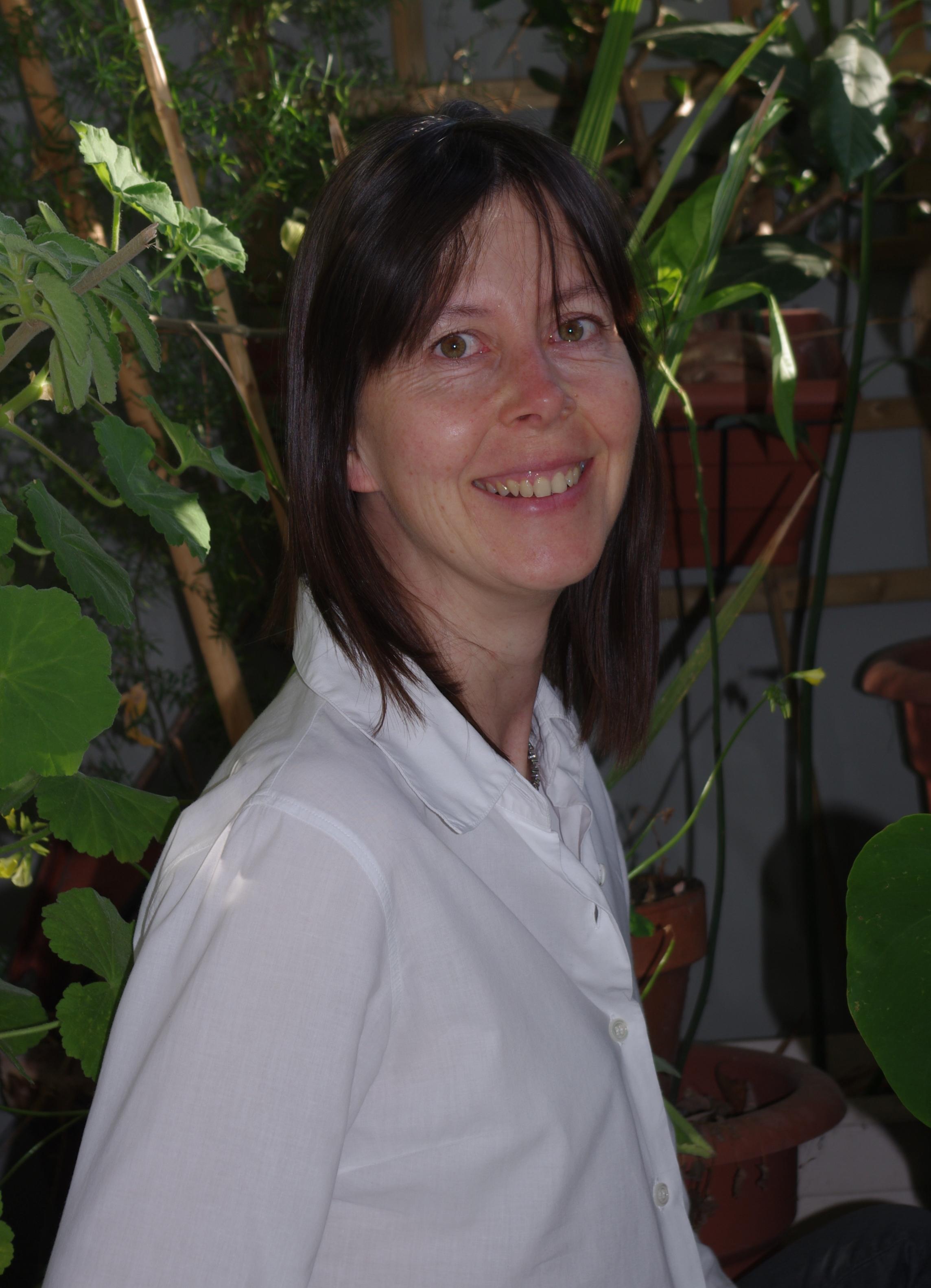
European Monitoring Centre for Drugs & Drug Addiction (EMCDDA)
Isabelle Giraudon is a scientific analyst on health consequences related to drug use at the European Monitoring Centre for Drugs and Drug Addiction (EMCDDA).
She is responsible for two of the five key epidemiological indicators monitored by the agency, the 'Drug-related deaths and mortality' and the ‘Drug-related infectious diseases’. This work includes research on morbidity and fatal overdoses, as well as the analysis of all causes of mortality among problem drug users, through European longitudinal cohort studies (including mortality related suicide, trauma, HIV and hepatitis).
She is also involved in other fields of monitoring and analysing drug-related harms, including in particular infectious diseases, acute emergencies and harms related to new psychoactive substances.
A French national, she studied public health and pharmaco-epidemiology (MSc). She is a graduate of the European Programme for Intervention Epidemiology training (EPIET). Her previous professional experiences were in Africa, France and England (Health Protection Agency, now Public health England), where she worked mainly on viral hepatitis, HIV and in the drugs field
Her previous research work at the national monitoring centre for drugs (OFDT) in France focused on early warning systems and new psychoactive drugs.
João Goulão
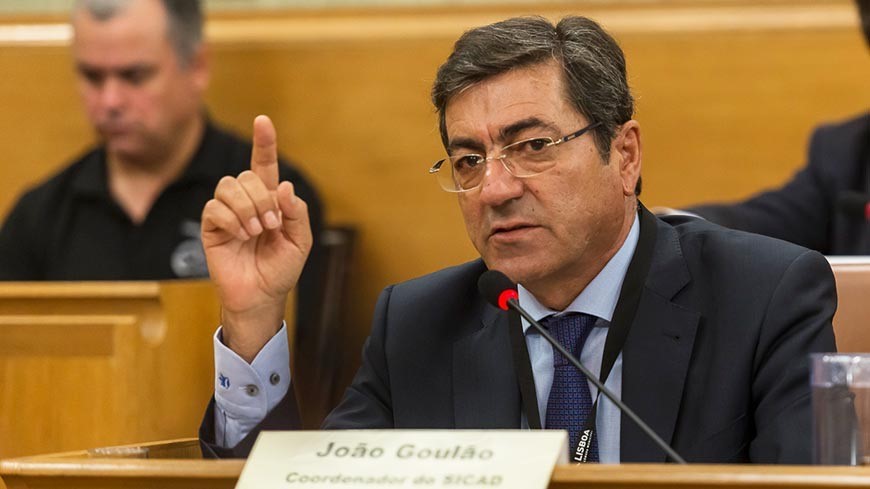
Portuguese National Drug Coordinator
João Castel-Branco Goulão is the Portuguese National Drugs Coordinator, Director General of the Intervention on Addictive Behaviours and Dependencies General Directorate and since January 2010 Chairman of the European Monitoring Centre on Drugs and Drug Addiction (EMCDDA). He was Chairman of the Institute on Drugs and Drug Addiction (2005-2012), Head of the national focal point in the EMCDDA's REITOX network, member of the EMCDDA Board since 2005 and previously served on the European agency's Scientific Committee (1997–2002).
A medical doctor by profession, Dr. Goulão has over 20 years' experience regarding drug-related issues, working in this field since 1987 as general practitioner and since then all his professional life has been devoted to drugs and health. He was also a member of the Portuguese Committee which, in 1999, prepared the report on which the first Portuguese Drug Strategy, which included decriminalisation, was based.
At international level, he has a long experience in this field, not only at the European level, but also in the United Nations context.
Janna Cousijn

Associate Professor
- University of Amsterdam
- Erasmus University Rotteram
Cousijn is Associate Professor in Clinical Neuroscience at the University of Amsterdam and the Erasmus University Rotterdam. Her Neuroscience of Addiction lab aims to understand human risk and resilience to psychopathology by studying how interactions with the environment shape brain and behaviour.
Cousijn received her PhD in 2012 (Cum Laude) and within a few years, she became a leading neuroscientist investigating cannabis addiction. Her cannabis work marks a milestone in showing similarities between cannabis addiction and other addictions, which was recognized through a 2016 APS-rising star designation. She strongly advocates a paradigm shift, embracing the potential for both positive and negative cannabis effects.
Cousijn received various national and international grants (e.g., ERC starting grant, NIDA-NIH RO1), is part of the Young Academy of Europe, collaborates in various international consortia including ENIGMA-Addiction, and works as a Deputy Regional Manager for the Addiction Journal.
Liesbeth Vandam

European Monitoring Centre for Drugs & Drug Addiction (EMCDDA)
Liesbeth Vandam is an 'Analyst — Scientific Coordination' in the Scientific division of the European Monitoring Centre for Drugs and Drugs Addiction (EMCDDA).
She holds a MSc degree in European Criminology and a PhD in Criminology, focusing on drug use among released prisoners. From 2006 until 2010 she worked in the Drug Unit of the Institute for International Research on Criminal Policy.
Since 2011, she is responsible for the coordination of the EMCDDA's technical programmes by providing technical and scientific support to the Scientific Director. She has published several research papers on drug-related crime, public expenditures, drug policy, drug use among prisoners and drug monitoring.
Lucas Wiessing

European Monitoring Centre for Drugs & Drug Addiction (EMCDDA)
Lucas Wiessing (PhD) is an epidemiologist and principal scientist at the European Monitoring Centre for Drugs and Drug Addiction (EMCDDA) in Lisbon.
He co-ordinates international studies on drug use and drug related consequences and interventions in the European Union – including on HIV and hepatitis C in injecting drug users, drug treatment and harm reduction.
He is a national from the Netherlands, has published frequently and collaborates with many relevant organisations and experts in his field, including participation in key international expert and advisory groups and scientific conferences.
Marica Ferri

Head of the Support to Practice Sector
- European Monitoring Centre for Drugs and Drug Addiction (EMCDDA)
Marica Ferri is the Head of the Support to Practice Sector at the European Monitoring Centre for Drugs and Drug Addiction (EMCDDA). She is responsible for the Scientific Programme for the European Drugs Summer School since 2015. She holds two Master´s degree, the first in Epidemiology (Catholic University of Rome, A. Gemelli) and the second in Systematic Reviewing of Scientific Literature in the Biomedical Field University of Milan/University of Oxford. and a PhD in International Public Health (Institute of Hygiene and Tropical Medicine, Nova University, Lisbon). Since 1994 she has been working as a researcher and methodologist in the field of drug addiction and other medical disciplines.
She has been coordinating the Cochrane Drugs and Alcohol group during five years (1999–2004) and following this, she acted as a methodologist in the development of
several Guidelines at international, national and regional level. She coordinated the implementation phase of those guidelines, including training and assessment. . She taught Masters University courses at the University Statale of Milan, University Bocconi of Milan and Catholic University of Rome, A. Gemelli and at Telematic University of Rome (UNITELMA)
Nuno Capaz
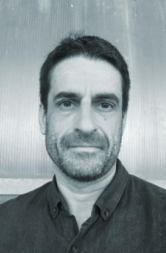
Comission for the Dissuasion of Drug Addiction
Nuno Capaz has been working for the Portuguese Ministry of Health’s Dissuasion Commissions since they were created in 2001.
These boards were created to apply Portugal’s decriminalization law. As such, he is a member of an interdisciplinary team that evaluates drug users.
He has also been in charge of correspondence with foreign delegations seeking information and research about the Portuguese model for drug policy.
Robert West

University College London
Robert J. West, PhD, is Professor of Health Psychology and Director of Tobacco Studies at the Cancer Research UK Health Behaviour Research Centre, University College London, UK. Professor West completed his PhD in Psychology in 1983 at University College London and worked as a postdoctoral researcher in the area of smoking at the Institute of Psychiatry until 1985 when he took up a lecturing position at Royal Holloway, London University. He continued his research into smoking and also began researching traffic accident involvement. In 1991 Professor West joined St George's, University of London, where he was made professor in 1996. He took up his present position in 2003.
Professor West's research includes clinical trials of new smoking cessation treatments, studies of the acute effects of cigarette withdrawal and population studies of smoking patterns. He has published more than 500 scientific works and is co-author of the English and Scottish National Smoking Cessation Guidelines that provided the blueprint for the UK-wide network of smoking cessation services that are now an established part of the National Health Service. He is author of the book, 'Theory of Addiction'.
Professor West is co-director of the NHS Centre for Smoking Cessation and Training, a member of the Board of Trustees of QUIT, a member of the Editorial Board of the Society for Research on Nicotine and Tobacco/WHO Tobacco Treatment Database, a member of the Editorial Board of the Cochrane Collaboration Tobacco Review Group, and is Editor-in-Chief of the journal Addiction. He is also Past-President of the Society for Research in Nicotine and Tobacco.
Teodora Groshkova

European Monitoring Centre for Drugs & Drug Addiction (EMCDDA)
Teodora Groshkova is a scientific analyst at the EMCDDA, contributing to a variety of projects on drug markets and health and social responses to drug problems. She joined the EMCDDA in 2010, having previously worked at the Institute of Psychiatry, Psychology and Neuroscience at King’s College London, where she undertook research on a range of drug-related topics. She has a background in Clinical Psychology and a PhD in the Psychology of Addiction.
Thomas Seyler
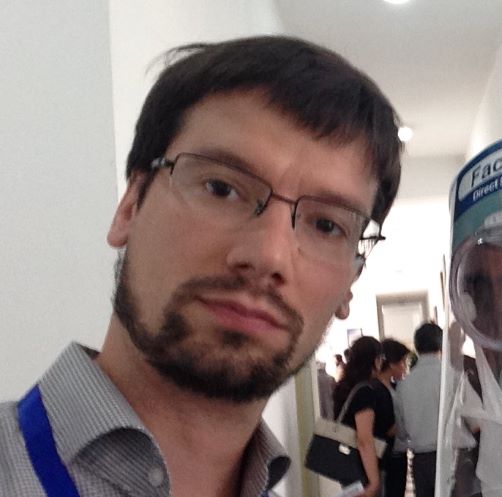
European Monitoring Centre for Drugs & Drug Addiction (EMCDDA)
Thomas Seyler is a scientific analyst on drug use and the drug problem at the Public Health unit, EMCDDA.
He trained as a field epidemiologist at the London School of Hygiene and Tropical Medicine and at the European Centre for Disease Prevention and Control (EPIET).
Before joining the EMCDDA, he worked in outbreak investigations, applied research, surveillance systems and training in Asia, Africa and Europe for infectious diseases such as Influenza, Chikungunya, Plague and Ebola.
At the EMCDDA Thomas is working on the Problem Drug Use (PDU) indicator, measuring the prevalence of the more problematic patterns of drug use in Europe, associated with the highest health risks and social costs, such as heroin use or injecting.
Tim Surmont

European Monitoring Centre for Drugs & Drug Addiction (EMCDDA)
Tim Surmont is a Belgian national working as scientific analyst, drug markets & drug-related crime, at the European Monitoring Centre for Drugs and Drug Addiction (EMCDDA) based in Lisbon, since 2016.
Tim holds a Master’s degree in Criminological Sciences, and has been working at Ghent University as research assistant on drug phenomena. He has published papers on cannabis production and supply, the Dutch coffeeshop model, cross-border drug tourism and mixed method criminological research. His latest publication is: “The Spice Trade: a profit estimation of EU online vendors of herbal smoking mixtures”, available here: https://doi.org/10.1177/1057567717745345.
He has special interests in transnational drug distribution networks, the Dutch drug policy, cannabis production, synthetic drug production, drug precursor trafficking, synthetic cannabinoid distribution and processing, organised crime groups, Western Balkans, and outlaw motorcycle gangs.
Twitter: Este endereço de email está protegido contra piratas. Necessita ativar o JavaScript para o visualizar.

Associate Professor (with Habilitation)
- NOVA FCSH University of Lisbon
Catherine Moury is Associate Professor of Political Science, and the director of the Phd Program of the Department of Political Studies at the NOVA University of Lisbon, Portugal. She is Associate Editor of the European Political Science Review. Born in Belgium, Catherine received an European PhD in Comparative Politics from Siena University (Italy) where she was nominated for the Jean Blondel Prize.
Her research focuses on comparative politics and institutional change in the European Union. She has published in the American Journal of Political Science, European Journal of Political Research, Comparative Political Studies, Journal of European Public Policy, among others. Her forthcoming book is ‘Capitalising on Constraint: Bailout politics in Eurozone countries’ (Manchester University Press).
She is recipient of several prizes, including the Merit Award for scientific service and engagement of Belgian citizens working abroad, the Santander Prize for Collaborative Research, the Gulbenkian Foundation Prize and the Vincent Wright Memorial prize.

Head of the Support to Practice Sector
- European Monitoring Centre for Drugs and Drug Addiction (EMCDDA)
Marica Ferri is the Head of the Support to Practice Sector at the European Monitoring Centre for Drugs and Drug Addiction (EMCDDA). She is responsible for the Scientific Programme for the European Drugs Summer School since 2015. She holds two Master´s degree, the first in Epidemiology (Catholic University of Rome, A. Gemelli) and the second in Systematic Reviewing of Scientific Literature in the Biomedical Field University of Milan/University of Oxford. and a PhD in International Public Health (Institute of Hygiene and Tropical Medicine, Nova University, Lisbon). Since 1994 she has been working as a researcher and methodologist in the field of drug addiction and other medical disciplines.
She has been coordinating the Cochrane Drugs and Alcohol group during five years (1999–2004) and following this, she acted as a methodologist in the development of
several Guidelines at international, national and regional level. She coordinated the implementation phase of those guidelines, including training and assessment. . She taught Masters University courses at the University Statale of Milan, University Bocconi of Milan and Catholic University of Rome, A. Gemelli and at Telematic University of Rome (UNITELMA)
Lecturers
![]()
Director
- European Monitoring Centre for Drugs & Drug Addiction (EMCDDA)
Mr Goosdeel joined the EMCDDA in 1999 as a project manager in the area of EU enlargement and international relations. From 2005, he headed the agency’s Reitox and international cooperation unit. In this capacity, he played a central role in: coordinating a network of 30 national drug monitoring centres; preparing EU candidate and potential candidate countries for membership of the EMCDDA; developing cooperation with neighbouring countries to the EU; and nurturing relations with countries beyond the Union (Central Asia, Russia, Latin America). Much of his 30-year career working in the field of public health at national, European and international level.
He holds a Master’s degree in clinical psychology and a special diploma in advanced management. He is proficient in six languages: French (mother tongue); English, Spanish, Greek, Portuguese and Dutch. He was born on 7 November 1959 in Brussels.

European Monitoring Centre for Drugs & Drug Addiction (EMCDDA)
Alessandra Bo is a biologist with a master degree in public health from the London School for Hygiene and Tropical Medicine. She has been working as a public health specialist in developing countries for both the European Commission and several international organizations. Among several activities, she set up a training course on Field Epidemiology for Sudanese Ministry of Health Officers and assisted an international organization with the final evaluation of a Reproductive Health programme.
In 2008 she joined the European Monitoring Centre for Drugs and Drug Addiction and has been involved in the development and coordination of the EMCDDA Best Practice Portal.

European Monitoring Centre for Drugs & Drug Addiction (EMCDDA)
Andrew Cunningham joined the European Monitoring Centre for Drugs and Drug Addiction in Lisbon, Portugal as a Scientific Analyst in Summer 2012. He is currently in the team responsible for the day-to-day running of the European Union's Early warning system for new psychoactive substances.
Andrew is a forensic chemist who started his police career in 1996 when he was appointed Forensic Chemist at the Strathclyde Police Forensic Science Laboratory in Glasgow, Scotland. In 2001, he took charge of the forensic drug laboratory in Glasgow, one of the busiest of such units in the United Kingdom.
From 2004 to 2012 he was employed as the Forensic Science Manager of the Scottish Crime and Drug Enforcement Agency, the police body with the mandate to tackle organised crime in Scotland. Amongst other tasks, he coordinated a network of Scottish forensic scientists at the forefront of monitoring for the emergence of new drugs.

European Monitoring Centre for Drugs & Drug Addiction (EMCDDA)
Brendan Hughes has been working at EMCDDA since 2001 in the field of national drug legislation, after gaining a Masters degree in International Criminal Law (LLM) specialising in narcotics law.
He manages the European Legal Database on Drugs (ELDD) which displays “penalties at a glance” for drug use, possession and trafficking laws, and has written various comparative overviews and analyses on different topics such as drug classifications, threshold quantities, alternatives to punishment, drug driving, and control systems for new psychoactive substances. He published the first European quantitative comparison of drug law sentencing and outcome statistics in 2009, followed by the first European qualitative comparison of trafficking scenarios in 2016.
He has advised ministers and parliamentary committees on issues such as decriminalisation, alternatives to punishment and cannabis legalisation, and has authored several articles published in peer-reviewed journals. Brendan Hughes is a British national.

Associate Professor (with Habilitation)
- NOVA FCSH University of Lisbon
Catherine Moury is Associate Professor (with Habilitation) of Political Science at NOVA FCSH University of Lisbon, Portugal. Her research focuses on comparative politics and institutional change in the European Union. She is the director of the PhD program and is currently the Principal Investigator on a project on Intergenerational Justice. She has published in the American Journal of Political Science, European Journal of Political Research, Comparative Political Studies, Journal of European Public Policy, among others. Her forthcoming book is Capitalising on Constraint: The Politics of Conditionality in Bailed-out Countries during and after the Eurozone Crisis (Manchester University Press).

European Monitoring Centre for Drugs & Drug Addiction (EMCDDA)
Danilo Ballotta (MSc) has been working for the past 20 years in the field of international drug policy. He joined the EMCDDA in 1997, where he worked on legislation, national and European policies and anti-drug coordination systems and has contributed to the agency's work on international drug policy. Since 2005, he has been a principal policy analyst at the EMCDDA, and coordinator of relations with European institutions. In this capacity, he represents the agency in the working group of the Council of Ministers of the European Union (HDG) and in the Strasbourg Council of Europe. Before joining the EMCDDA, Danilo worked at the United Nations Agency against Drugs and Crime (UNODC) and in the European Commission's Working Group on Justice and Home Affairs.

Ludwig-Maximilian University
Dr. Eva Hoch is a university lecturer and lead psychologist at the Department of Psychiatry and Psychotherapy, Ludwig-Maximilian University, Munich. She is an internationally renowned expert in the field of cannabis. With her research group she developed, tested and translated "CANDIS treatment program for cannabis use disorders" to clinical practice. The evidence-based treatment manual was translated into different languages. In her most recent work, Dr. Hoch focuses also on health benefits of cannabinoids. Other research topics are: New behavioral and e-interventions, treatment practice guidelines, epidemiological studies, randomized-controlled trials, systematic reviews and meta-analysis, international collaboration and networks. Dr. Hoch was honored through several research awards.

European Monitoring Centre for Drugs & Drug Addiction (EMCDDA)
Since 1996, Gregor Burkhart has been responsible for prevention responses at the European Monitoring Centre for Drugs and Drug Addiction. He has developed databases on best practice examples (EDDRA), evaluation tools (EIB) the Prevention and Evaluation Resource Kit (PERK) and the recently published Prevention profiles on the EMCDDA’s website. His main activities include the development of common European indicators on the implementation of prevention policies in Member States and the promotion of a better and clear understanding of universal, selective, indicated as well as environmental prevention in Europe. Gregor works on methodologies for monitoring prevention responses as well as how to improve and evaluate them.
He is co-founder of the European Society for Prevention Research and holds a doctoral degree in medicine (medical anthropology) on the influence of culture on the classification and perception of body and diseases in the Candomblé cults of Bahia, Brazil as well as an MPH degree from the University of Düsseldorf.
European Monitoring Centre for Drugs & Drug Addiction (EMCDDA)
Isabelle Giraudon is a scientific analyst on health consequences related to drug use at the European Monitoring Centre for Drugs and Drug Addiction (EMCDDA).
She is responsible for two of the five key epidemiological indicators monitored by the agency, the 'Drug-related deaths and mortality' and the ‘Drug-related infectious diseases’. This work includes research on morbidity and fatal overdoses, as well as the analysis of all causes of mortality among problem drug users, through European longitudinal cohort studies (including mortality related suicide, trauma, HIV and hepatitis).
She is also involved in other fields of monitoring and analysing drug-related harms, including in particular infectious diseases, acute emergencies and harms related to new psychoactive substances.
A French national, she studied public health and pharmaco-epidemiology (MSc). She is a graduate of the European Programme for Intervention Epidemiology training (EPIET). Her previous professional experiences were in Africa, France and England (Health Protection Agency, now Public health England), where she worked mainly on viral hepatitis, HIV and in the drugs field
Her previous research work at the national monitoring centre for drugs (OFDT) in France focused on early warning systems and new psychoactive drugs.

Portuguese National Drug Coordinator
João Castel-Branco Goulão is the Portuguese National Drugs Coordinator, Director General of the Intervention on Addictive Behaviours and Dependencies General Directorate and since January 2010 Chairman of the European Monitoring Centre on Drugs and Drug Addiction (EMCDDA). He was Chairman of the Institute on Drugs and Drug Addiction (2005-2012), Head of the national focal point in the EMCDDA's REITOX network, member of the EMCDDA Board since 2005 and previously served on the European agency's Scientific Committee (1997–2002).
A medical doctor by profession, Dr. Goulão has over 20 years' experience regarding drug-related issues, working in this field since 1987 as general practitioner and since then all his professional life has been devoted to drugs and health. He was also a member of the Portuguese Committee which, in 1999, prepared the report on which the first Portuguese Drug Strategy, which included decriminalisation, was based.
At international level, he has a long experience in this field, not only at the European level, but also in the United Nations context.

Associate Professor
- University of Amsterdam
- Erasmus University Rotteram
Cousijn is Associate Professor in Clinical Neuroscience at the University of Amsterdam and the Erasmus University Rotterdam. Her Neuroscience of Addiction lab aims to understand human risk and resilience to psychopathology by studying how interactions with the environment shape brain and behaviour.
Cousijn received her PhD in 2012 (Cum Laude) and within a few years, she became a leading neuroscientist investigating cannabis addiction. Her cannabis work marks a milestone in showing similarities between cannabis addiction and other addictions, which was recognized through a 2016 APS-rising star designation. She strongly advocates a paradigm shift, embracing the potential for both positive and negative cannabis effects.
Cousijn received various national and international grants (e.g., ERC starting grant, NIDA-NIH RO1), is part of the Young Academy of Europe, collaborates in various international consortia including ENIGMA-Addiction, and works as a Deputy Regional Manager for the Addiction Journal.

European Monitoring Centre for Drugs & Drug Addiction (EMCDDA)
Liesbeth Vandam is an 'Analyst — Scientific Coordination' in the Scientific division of the European Monitoring Centre for Drugs and Drugs Addiction (EMCDDA).
She holds a MSc degree in European Criminology and a PhD in Criminology, focusing on drug use among released prisoners. From 2006 until 2010 she worked in the Drug Unit of the Institute for International Research on Criminal Policy.
Since 2011, she is responsible for the coordination of the EMCDDA's technical programmes by providing technical and scientific support to the Scientific Director. She has published several research papers on drug-related crime, public expenditures, drug policy, drug use among prisoners and drug monitoring.

European Monitoring Centre for Drugs & Drug Addiction (EMCDDA)
Lucas Wiessing (PhD) is an epidemiologist and principal scientist at the European Monitoring Centre for Drugs and Drug Addiction (EMCDDA) in Lisbon.
He co-ordinates international studies on drug use and drug related consequences and interventions in the European Union – including on HIV and hepatitis C in injecting drug users, drug treatment and harm reduction.
He is a national from the Netherlands, has published frequently and collaborates with many relevant organisations and experts in his field, including participation in key international expert and advisory groups and scientific conferences.

Head of the Support to Practice Sector
- European Monitoring Centre for Drugs and Drug Addiction (EMCDDA)
Marica Ferri is the Head of the Support to Practice Sector at the European Monitoring Centre for Drugs and Drug Addiction (EMCDDA). She is responsible for the Scientific Programme for the European Drugs Summer School since 2015. She holds two Master´s degree, the first in Epidemiology (Catholic University of Rome, A. Gemelli) and the second in Systematic Reviewing of Scientific Literature in the Biomedical Field University of Milan/University of Oxford. and a PhD in International Public Health (Institute of Hygiene and Tropical Medicine, Nova University, Lisbon). Since 1994 she has been working as a researcher and methodologist in the field of drug addiction and other medical disciplines.
She has been coordinating the Cochrane Drugs and Alcohol group during five years (1999–2004) and following this, she acted as a methodologist in the development of
several Guidelines at international, national and regional level. She coordinated the implementation phase of those guidelines, including training and assessment. . She taught Masters University courses at the University Statale of Milan, University Bocconi of Milan and Catholic University of Rome, A. Gemelli and at Telematic University of Rome (UNITELMA)

Comission for the Dissuasion of Drug Addiction
Nuno Capaz has been working for the Portuguese Ministry of Health’s Dissuasion Commissions since they were created in 2001.
These boards were created to apply Portugal’s decriminalization law. As such, he is a member of an interdisciplinary team that evaluates drug users.
He has also been in charge of correspondence with foreign delegations seeking information and research about the Portuguese model for drug policy.

University College London
Robert J. West, PhD, is Professor of Health Psychology and Director of Tobacco Studies at the Cancer Research UK Health Behaviour Research Centre, University College London, UK. Professor West completed his PhD in Psychology in 1983 at University College London and worked as a postdoctoral researcher in the area of smoking at the Institute of Psychiatry until 1985 when he took up a lecturing position at Royal Holloway, London University. He continued his research into smoking and also began researching traffic accident involvement. In 1991 Professor West joined St George's, University of London, where he was made professor in 1996. He took up his present position in 2003.
Professor West's research includes clinical trials of new smoking cessation treatments, studies of the acute effects of cigarette withdrawal and population studies of smoking patterns. He has published more than 500 scientific works and is co-author of the English and Scottish National Smoking Cessation Guidelines that provided the blueprint for the UK-wide network of smoking cessation services that are now an established part of the National Health Service. He is author of the book, 'Theory of Addiction'.
Professor West is co-director of the NHS Centre for Smoking Cessation and Training, a member of the Board of Trustees of QUIT, a member of the Editorial Board of the Society for Research on Nicotine and Tobacco/WHO Tobacco Treatment Database, a member of the Editorial Board of the Cochrane Collaboration Tobacco Review Group, and is Editor-in-Chief of the journal Addiction. He is also Past-President of the Society for Research in Nicotine and Tobacco.

European Monitoring Centre for Drugs & Drug Addiction (EMCDDA)
Teodora Groshkova is a scientific analyst at the EMCDDA, contributing to a variety of projects on drug markets and health and social responses to drug problems. She joined the EMCDDA in 2010, having previously worked at the Institute of Psychiatry, Psychology and Neuroscience at King’s College London, where she undertook research on a range of drug-related topics. She has a background in Clinical Psychology and a PhD in the Psychology of Addiction.

European Monitoring Centre for Drugs & Drug Addiction (EMCDDA)
Thomas Seyler is a scientific analyst on drug use and the drug problem at the Public Health unit, EMCDDA.
He trained as a field epidemiologist at the London School of Hygiene and Tropical Medicine and at the European Centre for Disease Prevention and Control (EPIET).
Before joining the EMCDDA, he worked in outbreak investigations, applied research, surveillance systems and training in Asia, Africa and Europe for infectious diseases such as Influenza, Chikungunya, Plague and Ebola.
At the EMCDDA Thomas is working on the Problem Drug Use (PDU) indicator, measuring the prevalence of the more problematic patterns of drug use in Europe, associated with the highest health risks and social costs, such as heroin use or injecting.

European Monitoring Centre for Drugs & Drug Addiction (EMCDDA)
Tim Surmont is a Belgian national working as scientific analyst, drug markets & drug-related crime, at the European Monitoring Centre for Drugs and Drug Addiction (EMCDDA) based in Lisbon, since 2016.
Tim holds a Master’s degree in Criminological Sciences, and has been working at Ghent University as research assistant on drug phenomena. He has published papers on cannabis production and supply, the Dutch coffeeshop model, cross-border drug tourism and mixed method criminological research. His latest publication is: “The Spice Trade: a profit estimation of EU online vendors of herbal smoking mixtures”, available here: https://doi.org/10.1177/1057567717745345.
He has special interests in transnational drug distribution networks, the Dutch drug policy, cannabis production, synthetic drug production, drug precursor trafficking, synthetic cannabinoid distribution and processing, organised crime groups, Western Balkans, and outlaw motorcycle gangs.
Twitter:
Preço
- Full Price - 420.00€
- Early Bird fee (applied to everyone enrolling before 5th December 2021) - 360.00€
- Iscte Students - 240.00€
- Scholarships - 210.00€ (exclusively for scholars who register in the first phase)
The programme fee includes
- Tuition
- Course material, sessions recorded and made available for later viewing (on request)
A deposit of 150€ is requested when submitting your application, refunded only in case of course cancelation. In all other situations the deposit is non-refundable.
________________________________________________________________
Payment can be made by bank transfer to the account detailed below. Please note that the bank transfer must be free of any charges to the recipient. A copy of the transfer slip (indicating your name) should be sent to us by email as proof of payment.
Company: IPPS-IUL – Instituto para as Políticas Públicas e Sociais
NIB: 0036 0000 99105886113 55
IBAN: PT50 0036 0000 9910 5886 1135 5
BicSwift: MPIOPTPL
Name: IPPS-IUL – Instituto para as Políticas Públicas e Sociais
Address: Rua Castilho, n.º 5, 1250–066 Lisboa
________________________________________________________________
We also accept payment through TransferWise. If you want to use this payment method, please contact us:
Horário
- 60 hours | two intensive weeks
- Sessions: 13h00 - 16h00/17h00 GMT
- Exercises are given everyday. Please see the programme.
Datas de Inscrição
Registration: 04th October 2021 - 23rd January 2022
Early Bird registration: 04th October 2021 - 05th December 2021
In order to apply please click on "Application". Please attach in your application a scanned copy of your ID (EU citizens) or Passport, a digital photo (passport format), your Diploma(s), Curriculum Vitae and a proof of payment of the deposit
For help during your application process please contact



